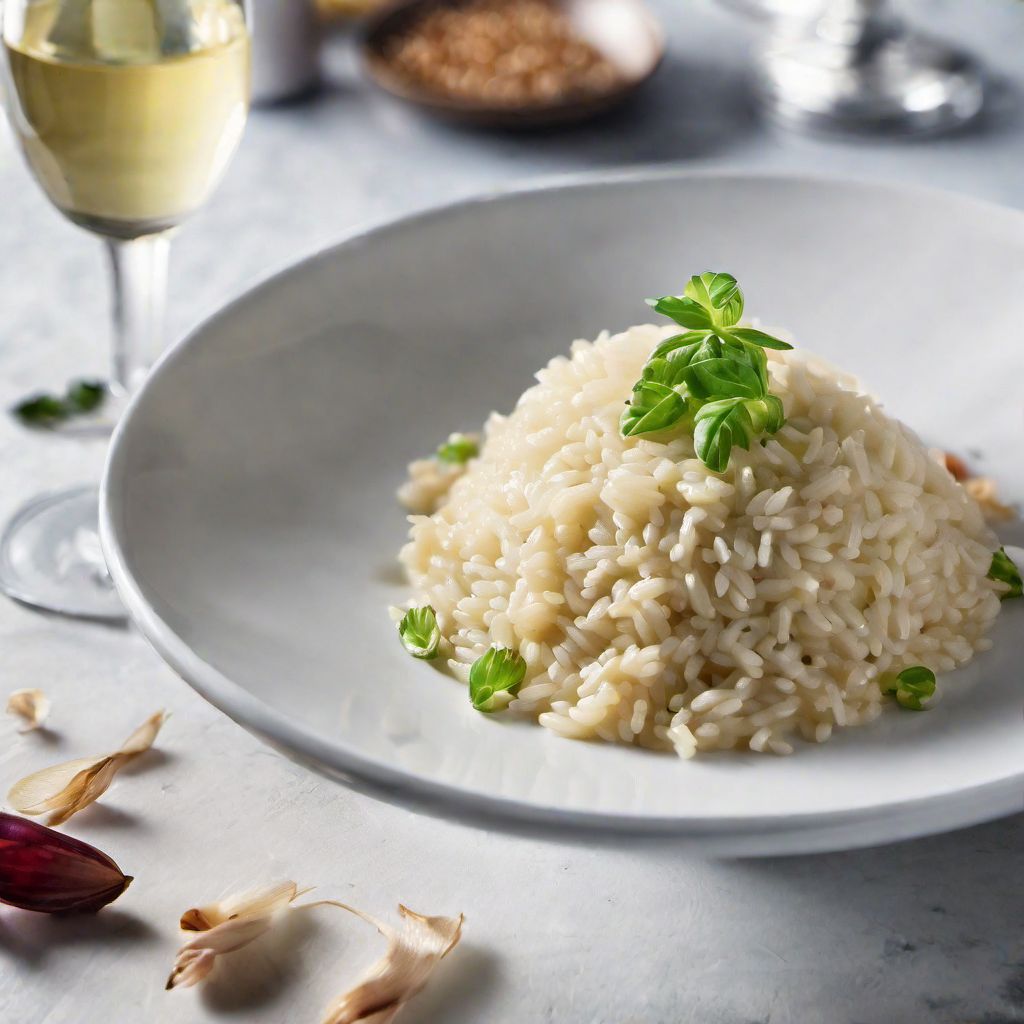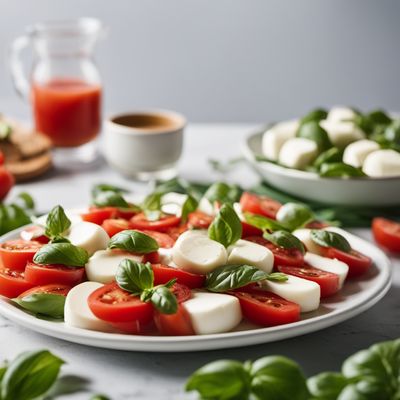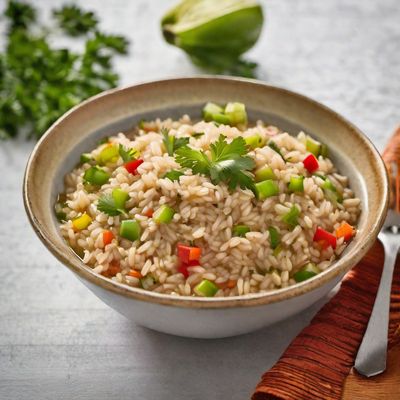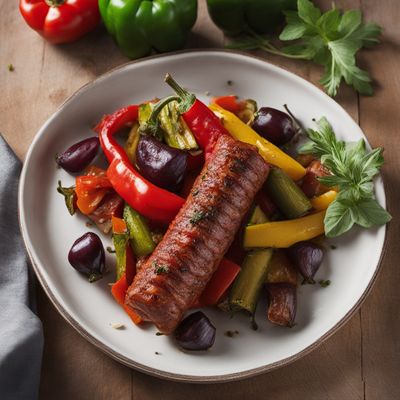
Recipe
Molecular Gastronomy Risotto
The Futuristic Twist: Molecular Gastronomy Risotto
4.8 out of 5
In the realm of molecular gastronomy, traditional dishes are transformed into innovative culinary experiences. This Molecular Gastronomy Risotto takes the classic Italian comfort food to new heights, combining scientific techniques with the rich flavors of a traditional risotto. Get ready to embark on a gastronomic adventure that will tantalize your taste buds and challenge your perception of texture and presentation.
Metadata
Preparation time
30 minutes
Cooking time
20 minutes
Total time
50 minutes
Yields
4 servings
Preparation difficulty
Medium
Suitable for
Vegetarian, Gluten-free, Low sodium, Low sugar, Low calorie
Allergens
Dairy (Parmesan cheese, butter)
Not suitable for
Vegan, Dairy-free, Paleo, Keto, Nut-free
Ingredients
While the original Italian risotto relies on slow cooking and the release of starch from Arborio rice, this molecular gastronomy adaptation focuses on manipulating the texture and presentation of the dish. By incorporating techniques such as spherification and foams, this risotto becomes a visually stunning and texturally unique creation. We alse have the original recipe for Risotto, so you can check it out.
-
200g (7 oz) Arborio rice 200g (7 oz) Arborio rice
-
500ml (2 cups) vegetable broth 500ml (2 cups) vegetable broth
-
50g (1.8 oz) Parmesan cheese, grated 50g (1.8 oz) Parmesan cheese, grated
-
50g (1.8 oz) butter 50g (1.8 oz) butter
-
100ml (3.4 fl oz) white wine 100ml (3.4 fl oz) white wine
-
1 shallot, finely chopped 1 shallot, finely chopped
-
1 garlic clove, minced 1 garlic clove, minced
-
Salt and pepper to taste Salt and pepper to taste
-
Liquid nitrogen (for molecular gastronomy techniques) Liquid nitrogen (for molecular gastronomy techniques)
Nutrition
- Calories (kcal / KJ): 350 kcal / 1465 KJ
- Fat (total, saturated): 12g, 7g
- Carbohydrates (total, sugars): 50g, 1g
- Protein: 8g
- Fiber: 2g
- Salt: 1g
Preparation
-
1.In a saucepan, heat the vegetable broth over medium heat until hot but not boiling.
-
2.In a separate large pan, melt the butter over medium heat. Add the chopped shallot and minced garlic, and sauté until translucent.
-
3.Add the Arborio rice to the pan and stir well to coat each grain with the butter mixture.
-
4.Pour in the white wine and cook until it evaporates, stirring constantly.
-
5.Begin adding the hot vegetable broth to the rice, one ladleful at a time, stirring continuously until the liquid is absorbed before adding more.
-
6.Repeat the process until the rice is cooked al dente, with a creamy texture. This should take approximately 20 minutes.
-
7.Remove the risotto from the heat and stir in the grated Parmesan cheese. Season with salt and pepper to taste.
-
8.Allow the risotto to cool slightly before proceeding with the molecular gastronomy techniques.
-
9.Using liquid nitrogen, create small spheres of the risotto by carefully dropping spoonfuls of the mixture into the liquid nitrogen. Remove the frozen spheres and let them thaw for a few seconds before serving.
-
10.For an additional molecular gastronomy touch, create a foam by blending a small portion of the risotto with a handheld blender until a frothy texture is achieved. Spoon the foam onto the plate alongside the risotto spheres.
Treat your ingredients with care...
- Arborio rice — Ensure the rice is cooked al dente to maintain its texture in the final dish.
- Liquid nitrogen — Handle with extreme caution and use protective gloves and goggles when working with liquid nitrogen.
- Parmesan cheese — Use freshly grated Parmesan for the best flavor and texture.
Tips & Tricks
- Experiment with different flavors by adding herbs or spices to the risotto mixture before freezing into spheres.
- For a burst of flavor, consider filling the risotto spheres with a liquid center, such as truffle oil or balsamic reduction.
- Serve the risotto spheres on a bed of microgreens or edible flowers for an added visual appeal.
- If liquid nitrogen is not available, you can achieve a similar effect by freezing the risotto mixture in a silicone mold and then thawing before serving.
- Don't forget to taste and adjust the seasoning of the risotto before freezing and serving.
Serving advice
Serve the Molecular Gastronomy Risotto on individual plates, arranging the frozen spheres in an aesthetically pleasing manner. Drizzle the foam alongside the spheres and garnish with fresh herbs or edible flowers. Encourage diners to experience the different textures and flavors by combining the spheres with the foam and savoring each bite.
Presentation advice
Create an artistic presentation by using a white or neutral-colored plate to showcase the vibrant colors of the risotto spheres and foam. Play with height and negative space to add visual interest to the dish. Consider using tweezers or small utensils to carefully arrange the spheres and foam for an elegant and precise presentation.
More recipes...
For Risotto » Browse all
For Italian cuisine » Browse all
More Italian cuisine dishes » Browse all

Granita di gelsi
Mulberry Granita
Granita di gelsi is a sweet and refreshing Italian dessert that is perfect for hot summer days. It is made by freezing sweetened mulberry juice...

Torta alla Monferrina
Monferrina Cake
Torta alla Monferrina is a traditional Italian dessert that is made with hazelnuts and chocolate. It is a rich and decadent cake that is perfect...

Caprese Salad
Caprese salad is a classic Italian dish that is made with fresh mozzarella, tomatoes, and basil. It is a simple and delicious salad that is...











